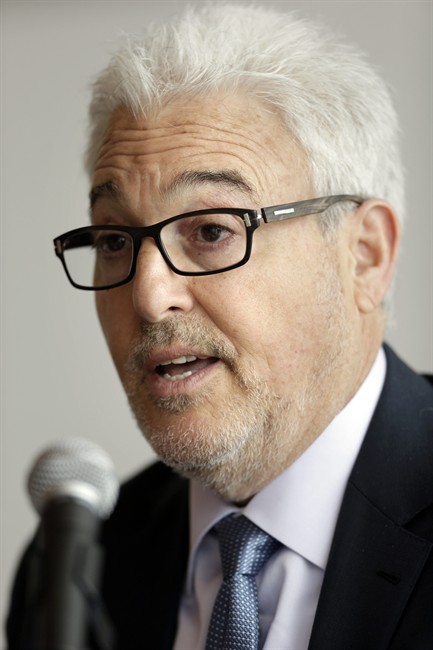PHILADELPHIA – A federal judge is slowing down the proposed US$765 million settlement of NFL concussion claims, questioning if there’s enough money to cover 20,000 retired players.

U.S. District Judge Anita B. Brody denied preliminary approval of the plan on Tuesday because she’s worried the money could run out sooner than expected. She also raised concerns that anyone who gets concussion damages from the NFL would be barred from suing the NCAA or other amateur football leagues.
READ MORE: Lawyers detail $765M plan for NFL concussions
“I am primarily concerned that not all retired NFL football players who ultimately receive a qualifying diagnosis or their (families) … will be paid,” the judge wrote.
The proposed settlement, negotiated over several months, is designed to last at least 65 years.
The awards would vary based on an ex-player’s age and diagnosis. A younger retiree with Lou Gehrig’s disease would get $5 million, those with serious dementia cases would get $3 million and an 80-year-old with early dementia would get $25,000. Retirees without symptoms would get baseline screening and follow-up care if needed.
READ MORE: Skip homework, video games, following concussion in kids, study says
“Even if only 10 per cent of retired NFL football players eventually receive a qualifying diagnosis,” the judge wrote, “it is difficult to see how the Monetary Award Fund would have the funds available over its lifespan to pay all claimants at these significant award levels.”
She asked for more raw financial data before scheduling a fairness hearing this year, when objectors can question the plan. The objectors could later decide to opt out of it.
Law professor Gabe Feldman, who directs the sports law program at the Tulane University Law School, called the ruling a setback but said “there’s no reason to panic.”
“The question remains whether this gives pause to some of the retired players and makes them question whether this is a settlement they want to be a part of,” he said.
Some critics said the NFL, with more than $9 billion in annual revenue, was getting away lightly. But the players’ lawyers said they would face huge challenges just to get the case to trial. They would have to prove the injuries were linked to the players’ NFL service and should not be handled through league arbitration. They could end up with nothing.
READ MORE: NFL players still hiding, playing with concussions despite long-term dangers to their health
Sol Weiss, a lead lawyer for the ex-players, remained confident the class action settlement will ultimately be approved. He said he was confident “that there will be enough money to cover these claims for 65 years.”
NFL spokesman Greg Aiello said league officials were “confident that the settlement is fair and adequate and look forward to demonstrating that to the court.”
More than 4,500 former players have filed suit, some accusing the league of fraud for its handling of concussions. They include former Dallas Cowboys running back Tony Dorsett and Super Bowl-winning Chicago Bears quarterback Jim McMahon, who suffers from dementia.
The judge’s hand-picked mediator, former federal judge Layn R. Phillips, led several months of negotiations last year and has called the deal fair to both sides.
The settlement would include $675 million for compensatory claims for players with neurological symptoms, $75 million for baseline testing for asymptomatic men and $10 million for medical research and education. The NFL also would pay an additional $112 million to the players’ lawyers for their fees and expenses, for a total payout of nearly $900 million.
The NCAA clause is apparently designed to prevent plaintiffs from double dipping. Feldman said he was unsure why the NFL would insist on that.
Given the judge’s ruling, the two sides could offer more evidence the fund would be stable, change the payout formula or perhaps have the NFL add more money to the pot. Otherwise, they may be left to start over.
“I think it’s a pretty efficient way of doing things, rather than bring it up for the first time at the fairness hearing,” Matt Mitten, who directs the National Sports Law Institute at the Marquette University Law School, said of the judge’s opinion. “Some of these guys need the money right now.”



Comments